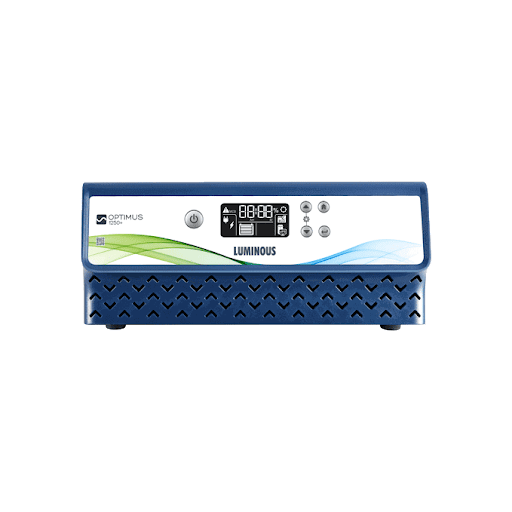5 Factors Affecting Inverter Efficiency
Recently, power outages have become a common occurrence, leaving people in the dark and without access to essential appliances. This is where home inverters come in handy.
Whether you are looking to upgrade your power backup system or considering investing in a home inverter for the first time, here, we will provide you with all the information regarding home inverters you are searching for.
Let us have a look!
Home Inverters: Definition, Importance & Benefits
Home inverters have become essential for households, especially in regions with inconsistent electricity supply. An inverter gives you an uninterrupted power supply and ensures that you can power your devices and appliances, even during an outage. But what exactly is a home inverter, and how does it work? Read on to get the answers to these questions.

A home inverter is a device that converts DC (direct current) power into AC (alternating current) power that can be used to power household appliances during a power outage or when there is no access to the main power supply. It is a backup power system that can provide electricity to essential appliances such as lights, fans, refrigerators, and TVs.
The Importance & Benefits of Home Inverters
How often does it happen when you have to send an important mail, and as you get near the power socket to turn on your discharged laptop, the power supply shuts off? Or you are blending the ingredients for a much-awaited dinner, and suddenly, the blender turns off due to a power outage? Many times, isn’t it? This is where a home inverter comes into action.
The importance and benefits of home inverters include the following:
- Power Backup: Home inverters are helpful in providing backup during power outages. This can ensure that critical appliances such as refrigerators, medical equipment, and security systems continue to function during power failure.
- Cost Savings: Unlike traditional generators, home inverters can help you with power backup without making a big hole in your pocket. Moreover, one can save money on electricity bills by reducing reliance on the power supply.
- Compact Size: Typically compact in design, home inverters take up less space than traditional diesel generators, making them a more practical solution for homes and businesses with limited space.
- Enhanced Monitoring and Control: Many home inverters have advanced monitoring and control features, allowing their users to track energy usage, optimize system performance, and receive alerts if any issues arise.
5 Major Factors Affecting Inverter Efficiency
Inverter efficiency is an essential feature to look for when selecting an inverter for your home or business. Here are five significant factors that can affect the efficiency of the inverter.
- Input Voltage: The input voltage of an inverter can also affect its efficiency. The inverter’s efficiency may decrease if the input voltage is too low or too high.
- Load Type: Limitations, such as inductive loads, like motors, can be more difficult for the inverter to power and may result in lower efficiency.
- Overuse: Using inverters beyond their operating limit, either by choice or due to oversight or lack of knowledge, can also affect their efficiency.
- Rusty or Corroded Battery Terminals: Corroded battery terminals can shorten the backup time. It can hinder a home inverter’s efficiency by disrupting the input and output voltage flow.
Conclusion
A range of factors and components can influence the efficiency of home inverters. Investing in high-quality inverter systems from a reputable brand such as Luminous is the most recommended approach for homeowners to get a reliable inverter in the long term. This way, you get great value for your money.
Visit Luminous’ official website to learn more!
